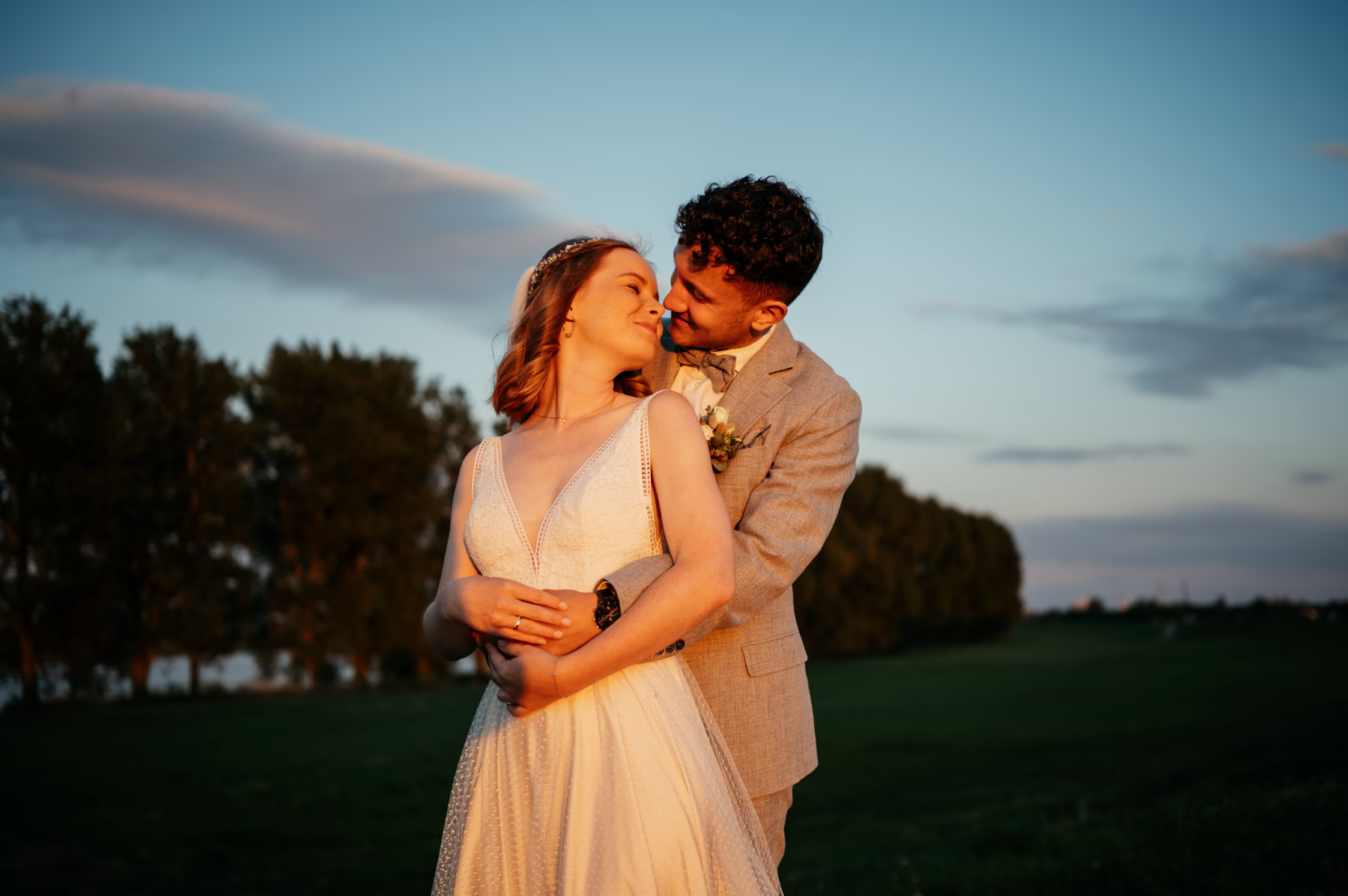The traditional day-to-day schedule of a wedding often follows old traditions, but there's no reason to stick to them. By planning your wedding day according to your preferences and circumstances, you can ensure that it reflects you and runs smoothly. A later ceremony, for example, allows more time for preparation, avoids gaps in the program, and allows for a smooth flow.
The “classic” wedding schedule
Have you ever wondered why the daily schedule is so similar at almost all weddings? Why do traditional ceremonies usually start at 3 p.m. (or even earlier), and why is the wedding cake served at midnight? Very few people know the answer to that – I certainly don't. It's probably a no-brainer: someone started this tradition, and it's just been carried on ever since. Do you find that boring? Then why not make your own rules? After all, there are no legal regulations governing the course of a wedding – so design your big day entirely according to your taste and personal preferences.
Individual planning
Planning your wedding according to your preferences and circumstances, rather than following traditional concepts, offers several advantages. First, you ensure that the day truly revolves around you and you are happy, without unnecessary stress or unwanted activities. Second, you can adapt the planning flexibly to factors such as the location and weather, for example, a late afternoon or early evening ceremony on hot summer days is more pleasant for everyone. Third, you avoid unusual gaps in the day's schedule that arise when longer periods of time need to be filled—for example, a champagne reception that lasts too long at an early ceremony.
Why a later wedding ceremony is good for a wedding
A later wedding ceremony generally also has the advantage that the bride and groom have more time in the morning and don't have to stress about styling and other preparations. It also creates a flowing schedule, meaning the various items flow naturally into one another, and boredom doesn't set in. Many couples worry that a tighter schedule will cause more stress, but that's rarely the case. Longer timescales generally lead to boredom, restlessness, and tiredness – and that would be a real shame considering the party later on, wouldn't it? After all, that's the highlight for many, and no one wants to see the first guests leave early!
Tip: If you have multiple locations planned for the ceremony and dinner/celebration, be sure to allow enough time for the journey. This is basically the only point where things could get a bit stressful for your guests. You never know how slow one group will be or what the traffic will be like – and no one wants to be late for the second location.
All the advantages of a late wedding in brief:
✔️ More time for preparation: You have more time in the morning for styling and other preparations, without unnecessary stress.
✔️ Smooth process: The various program items flow seamlessly into one another, thus avoiding boredom.
✔️ No unusual gaps in the daily routine: The later wedding ceremony eliminates the unusual gaps that had to be filled with long champagne receptions at earlier weddings.
✔️ Better mood for the party: A tighter schedule avoids boredom, restlessness and fatigue, making the party the highlight of the day for many.
✔️ Better shots of your wedding day: Your photographer and videographer will be delighted by the evening light. Especially on sunny summer days, the later the light, the more beautiful it is.
Of course, you shouldn't let anything stress you out. After all, the whole day should be a celebration of your love, so try to just go with the flow, enjoy the time, and give the special moments space to create unforgettable memories!


